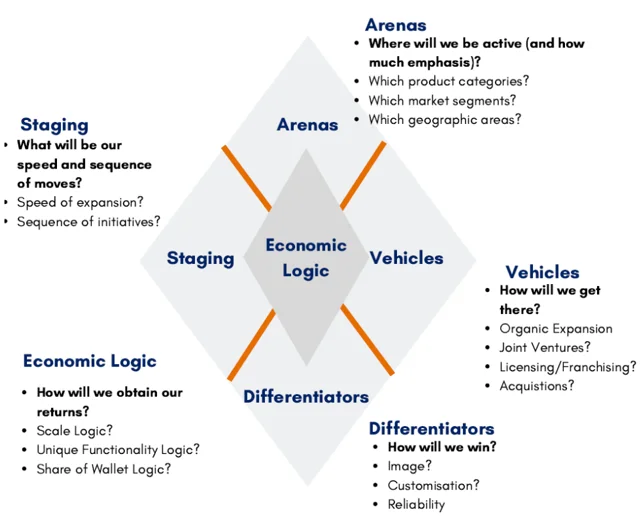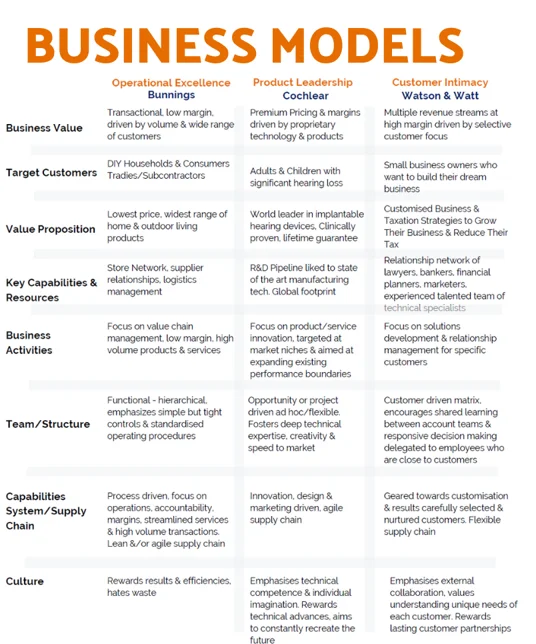So you’ve got an idea. It’s growing and growing it’s all consuming – it’s all you can think about. You just need to know how to start a business in Australia and money will fall from the sky, you’ll work from the beach and come and go as you please. Less Stress and more money right?
Maybe, but there is plenty of hard work between now and then and quitting your job isn’t for the fainthearted, so make sure you’re ready to take the plunge. When you are, here’s how you can give yourself the best shot at success.
If you’ve had an epiphany and come up with a new product or service, do your research, make sure no one else is doing it – or that people can’t get the end result in some other manner.
People don’t really care about how you do stuff (within reason), they just want the end result. So go deep on research and find out if it truly is new. Then think to yourself – why hasn’t someone else done this yet? Is there a demand from market for this product/service and how big is that market? How much would people be willing to pay for it. These will be pretty big guesses, but ask your friends, ask your co-workers, ask people in networking groups, and Facebook groups. Get them to tear it apart. You don’t want “Yes” people right now. You want the truth.
If you’re looking to buy or start your own business that sells stuff people already use (i.e an accounting firm, a café, imported furniture etc etc), consider what will make your business different. Why will people start to buy from you, rather than the businesses already in existence?
Once you’ve got the idea validated and some idea of market demand, think about the longer term – how big do you want this business to be? How much profit do you want (and “as much as I can” isn’t an answer. You need a dollar figure).
Legal Structure
Ok, so you’re now sure this idea can be a business, its something people want, and you can make your desired profit out of it. Its time to spend some money and get this going. Putting a business in the right legal structure is of critical importance, because the wrong structure and mismanagement of that structure can have disastrous consequences. The 4 areas we look at when consider structuring are;
- Asset Protection
- Tax minimisation/cash flow maximisation
- Administrative Ease of Operation
- Estate Planning
Whether sole trader, company, trust or partnership is right for you is based on your specific circumstances and is something you should discuss with an advisor like us – you can book a Free, no obligation chat right here.
By this point you’ll probably have a name you want to use, but you need to check that you can use it. It’s not enough that the name is available on ASIC, you also need to check the trademark register at IP Australia to make sure you’re not infringing on someone else’s intellectual property.
Read Next
Accounting And Tax
Now you’ve got to get your accounting and tax process mapped out and implemented. So many businesses go to the wall because they just don’t keep the tax man happy. Getting behind on taxes can absolutely bury you so set yourself for success and invest in getting a slick accounting process. One that can not only give you the numbers you need for the tax man, but will give you critical information to make business decisions. Running off how much cash you have in the bank, and the financials an accountant gives you at the end of every year is just not good enough. You need at least monthly reporting, budgets/goals to shoot for, and cash flow management to make it a success.
Getting this set up, means;
- Selecting a structure
- Applying for an ABN for that structure
- Registering for GST,
- Registering for PAYG Withholding
- Setting up a bank account
- Setting up your accounting software
And understanding when things like BAS and superannuation are due, when income tax instalments will start, and how Fringe Benefits Tax will apply to you.
As business consultants and accountants you’d expect that we think numbers are the most important factor in your business. And you’d be right. Yes, your “why” is important we get it. But without margin, there’s no mission. Your “why” doesn’t put food on the table, for that you need cold hard cash. So you need to know how you are going to monetize your “why” and what levers to pull that will get you to your financial goals.
As a bare minimum you need a forecast, and to know your breakeven point. You should know exactly how many sales you need each day/week/month/quarter to keep the doors open AND the number of sales you need to make the profit you want. From there you should also know which of the 4 levers to pull that directly influence your profit.
Strategic Choices
Ok, this is where your “why” comes in. This is where you make decisions about; who your target market will be, how you will distribute your product, how you will differentiate yourself from competitors, what your sequence and speed of moves will be and how all of this is going to translate into BANK.
But how do you do that? With so much noise around “strategy” let’s define what it actually is;
“a central, integrated, externally orientated concept of how the business will achieve its objectives”
– Hambrick & Fredriskon
So everything needs to be working together – but what is everything? It’s actually just 5 things that comprise every strategy;
Arenas
Arena’s are the markets you will be active in and are driven from your target customers, and your customer value proposition.
But we need to be as specific as possible. Are your customers in a geographical area? Are they of a certain income level or live in apartments versus houses?
In choosing arenas not only indicate where you will be active but also how much emphasis is placed on each. Some segments might be centrally important, while others are deemed secondary (keep the main thing the main thing).
Vehicles
Here you need to decide how you will get to the arenas you will be active in. The means by which arenas are entered matters greatly, and therefore should not be an afterthought.
Will you buy an established business? will you expand organically? – how? Referrals? Aggressive marketing campaign? Affiliate links? license someone else’s technology? JV? Franchise? Etc.
You May Also Like
Differentiators
What’s your competitive advantage? How will you win in your market place? – How will you get customers to come to you, and not your competitors?
The answers lie in your chosen business model (discussed next).
Staging
Arenas, vehicles, and differentiators might be thought of as the substance of strategy. What you plan to do. But there is another important consideration. Which one will you do first? Second? And how fast will you do them?
Staging is the speed and sequence of moves to take in order to heighten the likelihood of success.
Should you add new products first, and then expand into different geographical markets? Or the other way around?
Consideration should be given (but not limited to):
- You’ve got finite resources – funding & staffing – where will you deploy them first? second? etc
- Urgency – are there only brief windows of opportunity to act?
- Creditability – do you need to attain certain thresholds in specific arenas, differentiators or vehicles before you can attract the resources and stakeholders needed for other parts of your strategy? (i.e do you need enter market or product A, before you can release B & C?)
- Pursuit of early wins – for momentum – consider picking the low hanging fruit before you go get the ladder for the harder to reach..

What speed and sequence of moves will be made
Economic Logic
The heart of a strategy must be a very clear idea of how profits will be generated. The work you do for your Business Model, has the answers for this.
Using a framework like the Strategy Diamond, is a great way to ensure that all of these decisions are interdependent, and mutually reinforcing – Just like IKEA’s is.

Your business model is crucial to your success, not only does it dictate how you will do what you do, but it also dictates what your marketing looks like, how you dress, answer the phones, write emails, deliver your product or service and what your culture will be.
This business model needs to be consistent with the strategy diamond, but in general all businesses fit within 1 of 3 generic strategies; Operational Excellence, Product Leadership and Customized solutions.

Example of Porter’s Generic Business Models
Ensuring you understand your business model, what it is, and what it isn’t is critical to success. So many business fail because they just don’t have this sorted.
Plan it
Right, that’s all well and good, but who is going to get it done? when are they going to do it? How much money do they have to get it done? That’s where you need a plan. A detailed week by week plan to getting shit done. Don’t overload yourself, make it achievable. These are things that need to get done, and the time frame required for you to get this business up and running. Without a plan you’ll be running around like a chook without a head, and end up making hasty, ill-informed decisions because stuff will pop up that you hadn’t thought about (bank needs a business plan, lease needs a financial advice report etc).
This plan should be looked at every day to make sure everyone knows what they need to do and is on track. If things start slipping, you’ll be on top of it and the flow on effects it will have.
Do It
Making and keeping promises to yourself is one of the greatest attributes a person can have. The discipline and accountability to no one but yourself is what separates those who achieve their goals and those who don’t. Everybody gets tired of the grind, everybody wants to slump into the couch after a long day or snooze in the morning every now and then, but those with discipline and accountability to themselves and their goals will get up and do the work – even when they don’t want to. And honestly, if you’ve gotten this far in the process you seem dedicated to the goal, so pick yourself up and do the work you mapped out for yourself in the planning stage. It’s no biggie if you don’t – just find a way to be content with your current situation and living with that nagging thought “what if?”.
No don’t get me wrong, when I say “you need to do it”. It doesn’t mean you physically have to do everything. But it does mean that you need to take charge of the plan and properly delegate the tasks to experts where required. Proper delegation requires systems and processes – all of which you won’t have yet, so make sure as you’re going these get documented. If you’ve got someone coming up with a logo/branding/colours – make sure they document the font set, the RGB colours, where to get it printed, what size etc etc. Then when you need something else done in this area, you have the brand guidelines to use. That’s how you grow and scale.
Refine It
A lot businesses miss this step. They get the business going and the mentally check out from strategy because they get so busy doing the do. But to stay relevant, to keep customers coming back and ensure long term success for your business you need to prioritize this.
Strategy (or working on your business) isn’t something you do “when you have time”. You do this first and then find time for the other stuff – if that means hiring some extra hands to get the actual work done, then that’s what you need to do. You can’t outsource your strategy – sure we can help you with every step in this process – but this is your business, only you can tell us what you want your business to be, to do, and to feel like. Obviously you won’t have the cash to do this right away, but it’s something you should be working towards – it should be in your plan – that we need to get this level of profitability to hire our next person to do XYZ.
That’s what boards of directors in a small business should be doing. Helping you stay on track across all the areas of your business and refine the strategy so you can keep doing better.
Starting a business in Australia is relatively easy. You can be up and going in minutes. Starting a successful business that is set up for the long term is harder. There is work to be done to get it right and honestly most people don’t do it. Some because they are lazy and want to cut corners, but mostly because they just don’t understand everything that goes into it. So regardless of how far along you are, stop what you’re doing and take the time to plan it out and do the work necessary to be successful.
